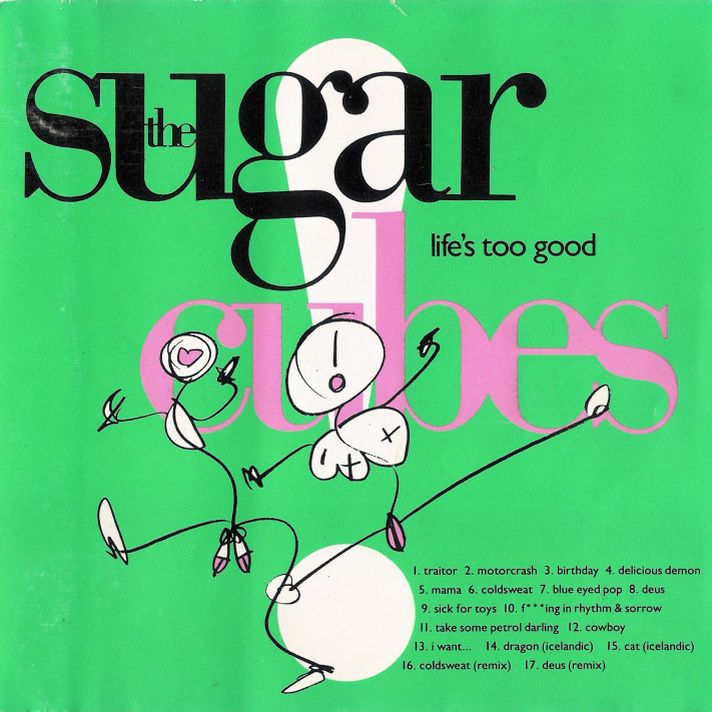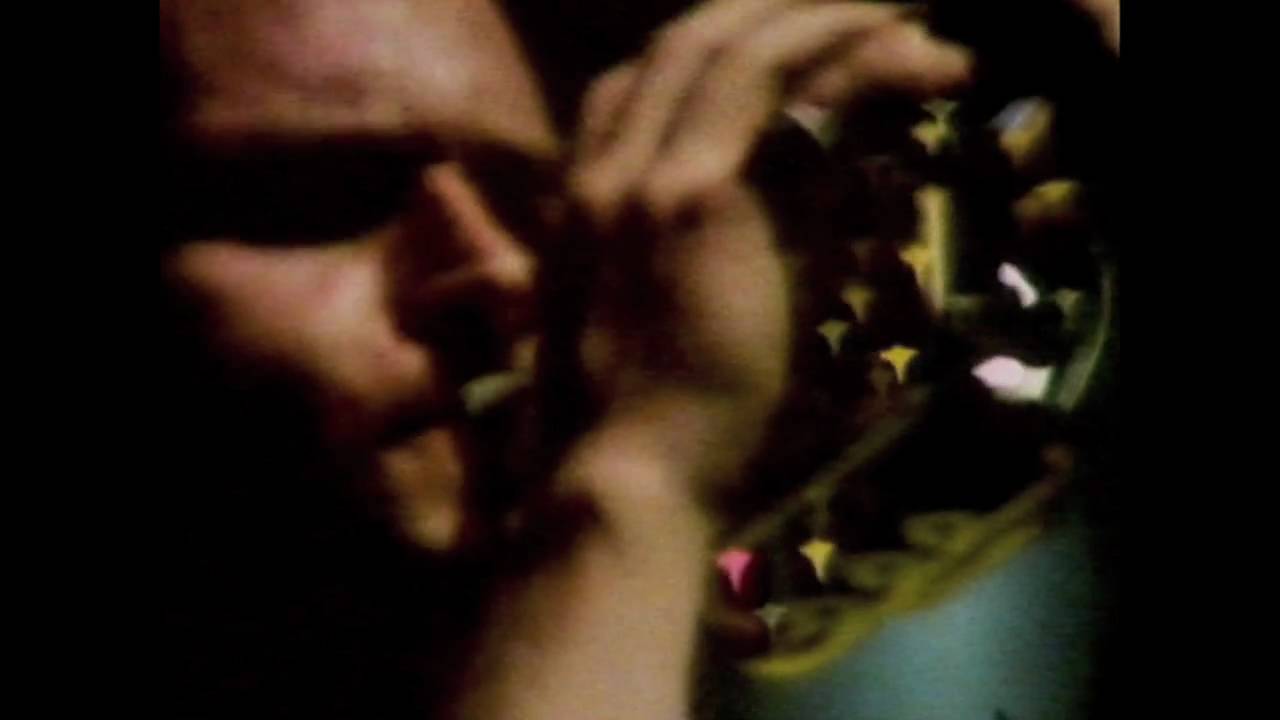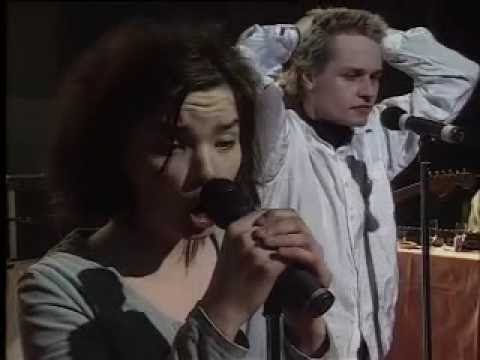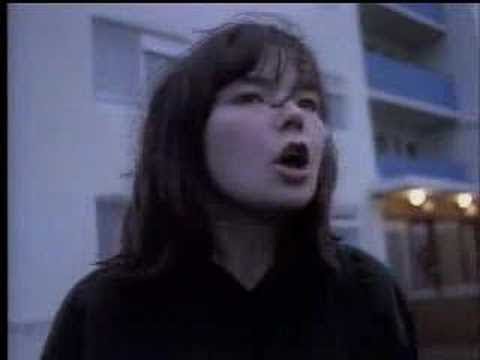In the wake of The Great Angularity of 2005, a revival left to the hands of the Editors and Bloc Party that became a thing of self-conscious gloom-hounding and po-faced pretension, it’s hardly surprising that the term ‘post punk’ is now more than ever loaded with connotations monochrome and dour.
So just as they did in the sometimes stringent seriousness of the alternative 80s, in the angry wake of Crass and Flux Of Pink Indians et al, let the Sugarcubes, on the 30th anniversary of their colourful, breathless debut, remind us that seriousness can act silly, good taste can be bad, music can be fun and life can be good.
Daft as it was, in its own way, Life’s Too Good (named for a jokey "optimistic complaint" made by an impoverished artist friend of the band on being given a cup of coffee and a cigarette) was a manifesto. The band were all punk and post-punk veterans, Björk in particular having been queen of the Reykjavik scene since age 11. On the demise of their none-more-dark, black-clad post-punk supergroup Kukl, they formed a joke band, The Sugarcubes (named for the form of nutrition they were driven to on tours). The record label set up by the band and their associates, Smekkyleysa, translates as "bad taste", from Picasso’s dictum “good taste and frugality are the enemies of creativity”. Daftness was, for this bunch of tricksters, a statement. You can see the echoes of Smekkleysa’s attitude in the Best Party, the gang of punk survivors, comedians and musicians that took over Reykjavik’s city council in the wake of the Icelandic banking crash (indeed, Sugarcubes vocalist Einar Orn was tangentially involved, and Reykjavik mayor Jon Gnarr, a former punk poet, was a Sugarcubes mucker). When nothing makes sense any more, why not vote for nonsense?
The Sugarcubes debut album dispenses with Picasso’s despised frugality by having its sleeve printed in five acid-bright colours; as for good taste, well… it can’t quite make its mind up about that. It starts on a serious note, a suitably artistic topic: the last thoughts of a man shot at dawn for treachery in the Spanish Civil War. Yet the weighty subject is sent spinning into uncertainty by king clown Einar, the trickster rapper, gibbering on about teaching the angels to play harmonica. And yet… “When the sun rises… I will not see/ It was worth it.”
Swirling, Cure-ish guitar and loping bass seem all present and correct for a tastefully late-80s goth-tinged guitar band, but don’t swoon too soon; there’s an awkward thorn, an inappropriate laugh, a naked bum round every corner with this album.
Round the first bend, for example: screeeeeee! The creepy baby-Ballardisms of ‘Motorcrash’, one of the many infantile, surreal scenarios in Life’s Too Good’s lyrics, with a bicycling Björk chancing upon a car accident, and stealing away an injured woman to nurse in her house. Björk’s childlike lyrical approach, one source of the patronising wild-child/pixie image that dogs her career to this day, owed much to her twin obsessions with Gunter Grass’ The Tin Drum and Georges Batailles’ Story Of The Eye, with whimsical meanderings that could suddenly plunge into dark or perverse thickets without warning (see also the unsettling ‘Sick For Toys’). As Einar puts it over horn-gilded guitar-pop so frisky it could be a low-budget Huey Lewis And The News: “Believe you me, I know what innocent looks like/ And it wasn’t there after she got that bicycle.”
To many ears at the time, Einar was the fly in The Sugarcubes’ ointment; the prickly, ridiculous thorn that scratched the band’s innate gorgeousness uncomfortably. The inkies would have been happy if the Cubes ditched Einar, and delectable cover star, ready-to-iconise pixie-woman-puffin-eater-wild-child-pick-your-patronising-daydream Björk was let free, as on the ever-breathtaking ‘Birthday’, (Melody Maker single of the week at the time and a breakout hit in both the US and the UK), to soar and ululate through fresh-faced, odd-angled dream pop and birds sewn in your knickers.
But that’s not the way The Sugarcubes wanted it. They wanted it, as is Icelanders’ wont, their own weird way. ‘Blue-Eyed Pop’ is the mission statement, contrasting a consumer dream of a 50s US pop dream (“It’s just fabulous to go twisting… we all crave a hot dog splashed with noise”) with the wilder northern European model The Sugarcubes propose (“I will look here inside this disco/ It is so hot hot hot, we melt together like tigers and are dancing together”). A little disingenuous – unique as they are, The Sugarcubes do have some sonic forebears in the cartoonish exuberances of The Cramps and, in particular, The B-52’s, and also in the primary coloured, awkward dance-frenzy of Talking Heads.
All they borrow, though, is tuned to their own thrawn purposes, ‘Delicious Demon’ ringing with riddles of Norse gnomicness: “To plough takes two as well/ Only one to hold up the sky”, “Two men need money but one money needs no man”. Often, too, what pop-ness is here, is in attitude more than sound, with their post punk heritage coming through strongly in Björk’s agonised wails and the music’s dark grind and lurch.
And the album churns, beneath its batting eyelashes, with base and powerful instincts, from the threatening sexuality of ‘Cold Sweat’ with its grindingly heavy punk-funk, to the longing for the maternal enwombing of security of ‘Mama’, Björk howling as passionately as for any love song. As the theological bimble of ‘Deus’ – intercut with Björk’s hallucinations about massive collars – puts it, “”To create a universe/ You must taste the forbidden fruit”.
If there’s anything that the not-quite-uncaring universe created by Sugarcubes’ debut has to teach us, it’s contained in the deceptively dramatically titled ‘Fucking In Rhythm And Sorrow’, where Björk relates the tale of a woman coming home from a bar to find a naked man in existential agonies on her living room floor, as an itchy skiffle-like rhythm envelops all like a harsh but warming jumper. Unimpressed, she admonishes him: “You should use the pain and sorrow/ To fill you up with power/ Life’s both sweet and sour!”
Or in other words: cheer up, goff!





